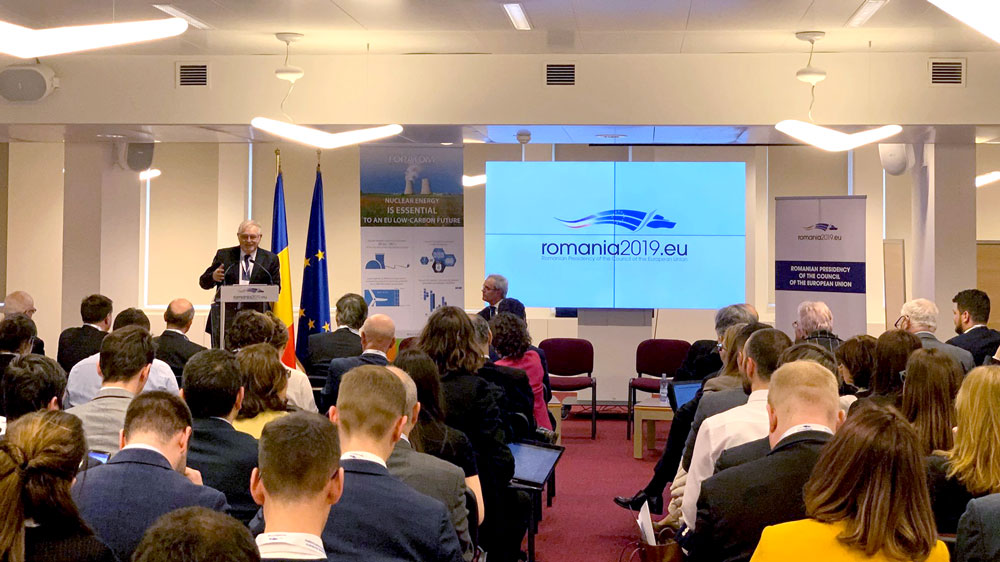Solutions for a 2050 carbon-free Europe
The contribution of low carbon technologies
In the context of Romanian Presidency of the Council of the European Union, the Ministry of Energy, in cooperation with the European Atomic Forum (FORATOM) and the Romanian Atomic Forum (ROMATOM), organized the Conference ‘Solutions for a 2050 carbon-free Europe – The contribution of low carbon technologies.’
The event, which took place at the headquarters of the Permanent Representation of Romania to the European Union in Brussels, created a platform for debates on challenges of the European energy system, namely the transition to decarbonization of the energy sector in the European Union.
The conference was opened by Romanian Energy Minister Anton Anton and European Commissioner for Climate and Energy Policy Miguel Arias Cañete.
“We are going through a crucial moment when we have a great responsibility to our citizens, towards whom we need to make clear, predictable and smart decisions for the development of the European energy system. Throughout this process we have to keep in mind energy security, the affordability of costs for the population, the social and economic development of the Member States and the responsibility towards the environment. For this reason, in order to respond to these challenges and reach the targets set by the European Union on decarbonization, we need all the forms of clean technologies. Nuclear energy, which is globally recognized as a low-carbon energy source, can contribute to ensuring energy security and combating climate change,” Minister Anton Anton pointed out.
In turn, Miguel Arias Cañete presented the Strategy of the European Commission for reducing emissions of greenhouse gases in the EU, in the context of objectives set by the Paris Agreement. The Commissioner noted that one of the future challenges would be to identify the solutions leading to the energy system’s transformation towards decarbonization, in the conditions of increasing economic competitiveness and creating new jobs.
At the same time, Miguel Arias Cañete said that the development and implementation of the new technologies requires particular attention, as in order to reach the ambitious targets in the field of energy and environment a smooth transition for the European consumers is necessary.
The event of the Romanian Presidency of the European Council of the EU brought together dozens of representatives from various low-carbon emissions electricity production sectors (nuclear, wind and hydro), as well as representatives of energy-intensive consumers (the International Federation of Industrial Energy Consumers).



